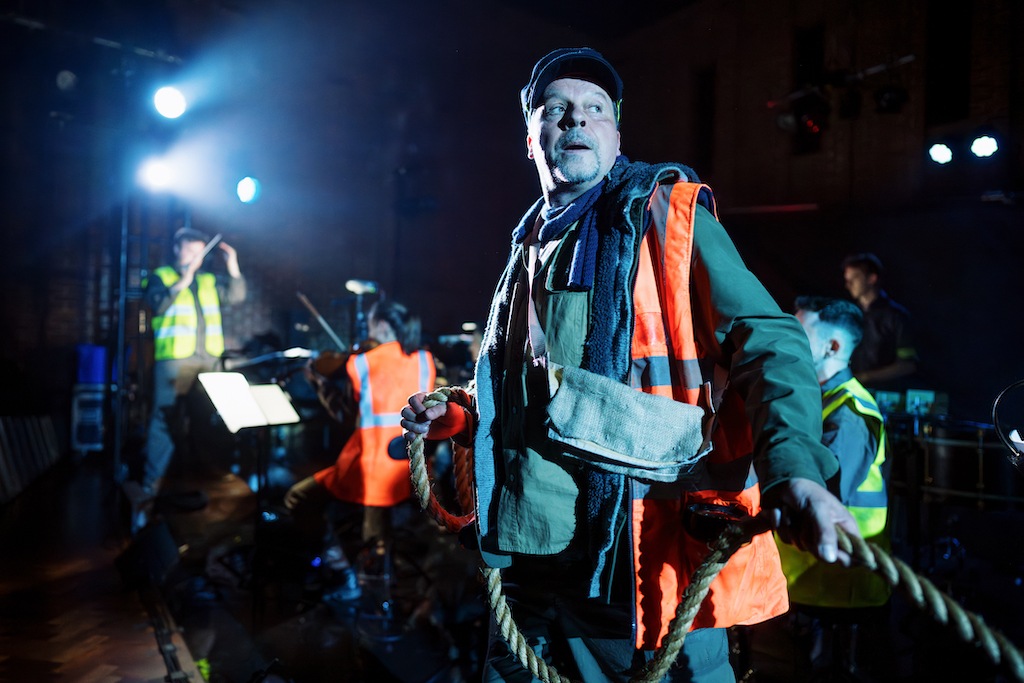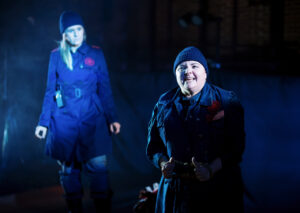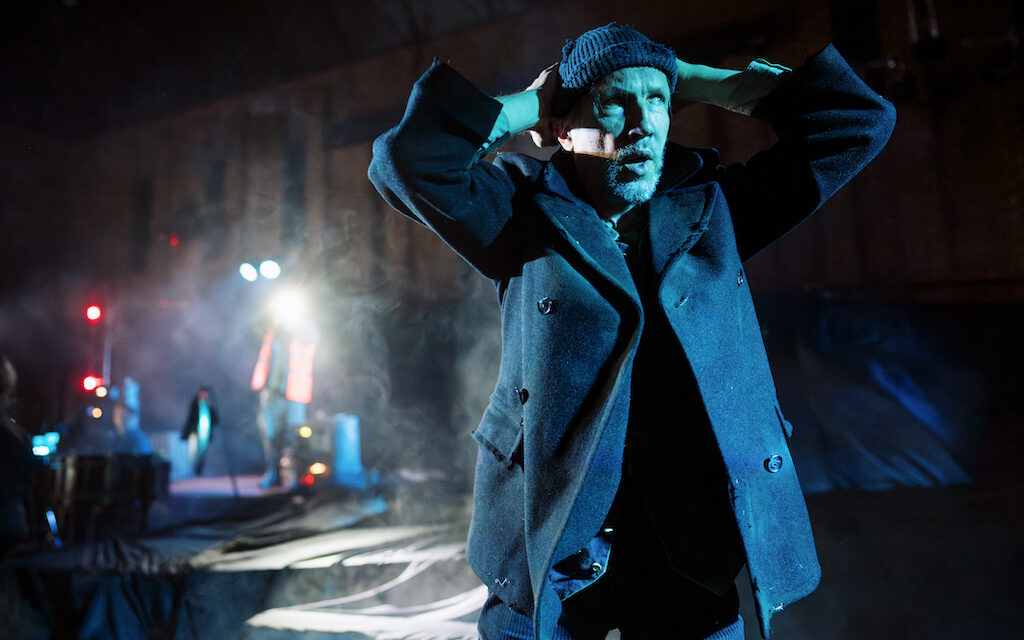
4 – 5 July
OperaUpClose and the Manchester Camerata have combined to produce a fearless, ambitious re-telling of Richard Wagner’s epic tale and score, inspired by an original story by Heinrich Heine in which a sea captain is cursed to forever sail the seven seas until released by the love of a faithful woman.
Director Lucy Bradley’s vision for the piece has injected this Dutchman with a searing new relevance – a contemporary take on our ideas of state, home and our attitudes towards those seeking shelter from storms both real and metaphorical. Poet and librettist Glyn Maxwell describes a dystopian island nation that is ringing itself with fortifications and cabling that will create waves big enough to destroy any refugee boats bound for our shores – a place where badged citizen volunteers patrol the cliffs overlooking the channel ready to report any incursions. The doomed captain of Wagner’s Dutchman has been reimagined as the deeply troubled skipper of a small boat that has somehow managed to drift close to shore, despite the obstacles before it. Like Wagner’s original, this mariner desires redemption and a place of sanctuary, while the ghosts that resided in the hulk of the first Dutchman have been replaced with more lost souls, but this time ones with real flesh and blood.
The wonder of OperaUpClose is that it successfully translates the magnitude of Wagner’s orchestration with just four singers and eight musicians. With a minimum of staging – mostly black plastic sheeting undulating to infer a rolling sea – this passionate story, of a nation descending into nationalist isolationism with its sub plots of thwarted and unrealised love, was played out with great intensity. Neil Balfour’s recorded mash-up of shipping forecast and record of social disintegration, ‘broadcast’ on a radio, was inspired satire and a witty Act opener.
Pauls Putnins’ Mariner looked and acted every bit the hollowed out and desperate seafarer with a glorious voice as deep and as powerful as one might imagine the ocean on which he suffered. Philippa Boyle as Starlight, the Senta in Wagner’s opera, brought enormous range of expression to a woman lost in a dream, but visionary enough to see past the politics bearing down on her – her last notes almost lifting the roof.

Carolyn Holt convinced as the sleepy watch guard Helm and the authoritarian Mari, a jilted lover of Starlight – lacing her delicious duet with her ‘ex’ with petulant frustration – “how can our joy so soon be gone?” Timothy Dawkins made the most of the scurrilously opportunistic Captain Dee.

The eight members of the Manchester Camerata, togged up with fishermen’s waterproofs for the night, comprised percussion, double bass, violin, cello, accordion, French horn, flute and clarinet led by musical director Timothy Burke. They also sang as the chorus before being joined (by pre-recorded) community choirs from the Wellbeing Choir at Bristol Old Vic, Blackpool Grand Theatre, Hull Freedom Chorus, London’s Grand Junction, and MAST Mayflower Studios Southampton. Their playing was exemplary, adding extraordinary drama and pathos throughout.
Sitting so close to the music stands the audience really gets to experience the nuances of the music and the performances that an OperaUpClose production brings – a memorable and thought-provoking evening.
★★★★★ Simon Bishop, 5 July 2023
Photo credit: Alex Brenner


